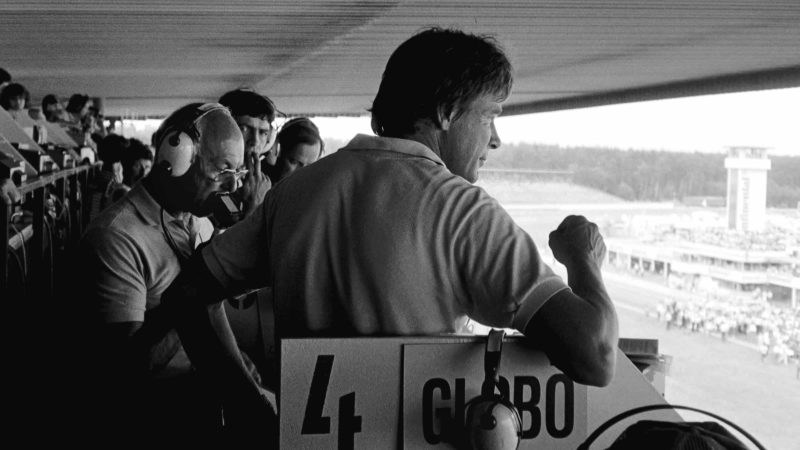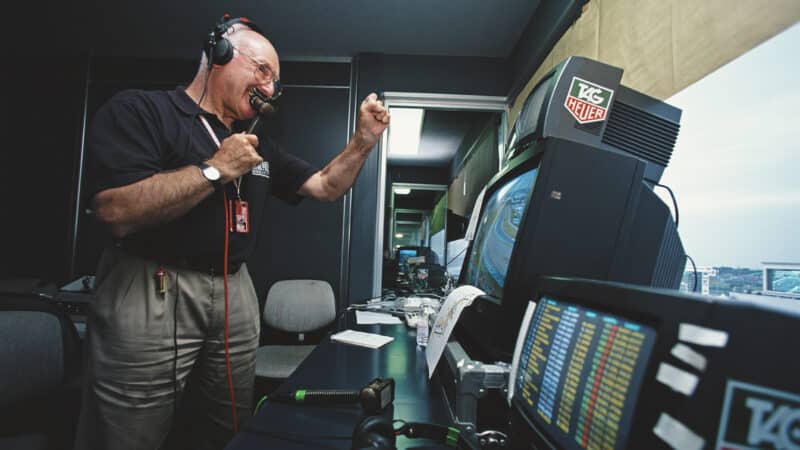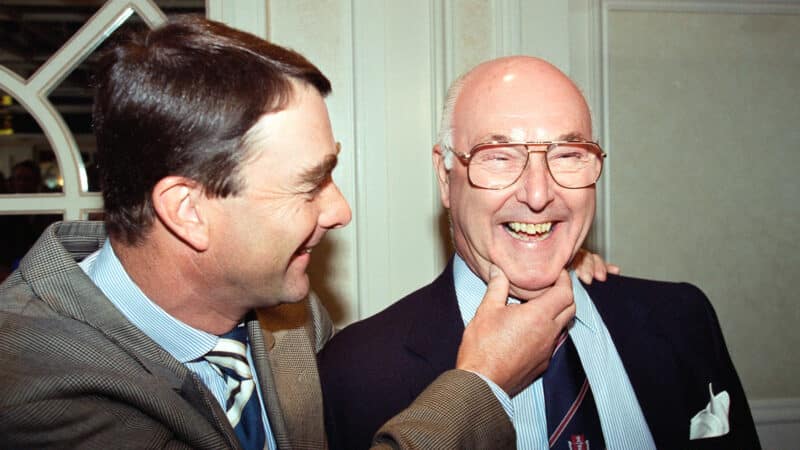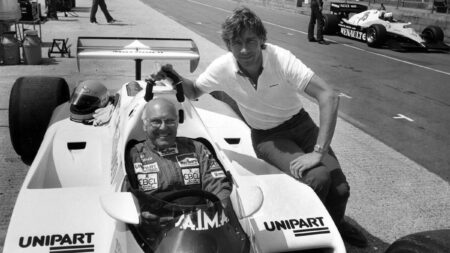Here is just one example. In 2001 I mentioned to him during a phone call that we were planning a feature article to mark the 50-year anniversary of Ferrari’s first ever F1 grand prix victory, which was won by Froilan Gonzalez at Silverstone in 1951. “Oh I was there,” he said, casually.
“Really?” I asked.
“Oh yes. Gonzalez was a big lad. In fact he looked like a barrel of lard with an inverted pudding bowl on top. He was just this great big dumpy figure jammed into the car, flailing away at it. I wouldn’t say he was driving wildly but he occasionally hit straw bales and things.” I loved “and things” then and I love it now.
Murray became world-famous for his malapropisms – “Tambay’s hopes, which were nil before, are zero now”; “Do my eyes deceive me or is Senna’s Lotus sounding rough?”; “This will be Williams’ first win since the last time a Williams won”; “Stewart has two cars in the top five, Magnussen fifth and Barrichello sixth”; “There’s no damage to the car except to the car itself”; and, my personal favourite, “Unless I’m very much mistaken, I’m very much mistaken”, which became the title of his best-selling 2002 autobiography.

Commentating partnership with James Hunt was F1 broadcasting gold
To F1 insiders and cognoscenti he was almost as well known for his reluctance to criticise drivers even when they had driven poorly or had made glaring errors — in marked contrast to his languorous yet pugnacious co-commentator James Hunt. But in person he was much less reticent. His popularity soared in the late 1980s and early 1990s as that of Nigel Mansell did likewise, but the truth was that, although he recognised Mansell’s doughty genius behind the wheel, he also found him very difficult. “Oh yes, Nigel really fired me up,” he once told me. “A great, great driver. Balls like melons. But also one of the thinnest-skinned, most easily offended, most prickly people I’ve ever met. But my attitude was: because he’s the driver he is, I’ll humour the bloke.”




